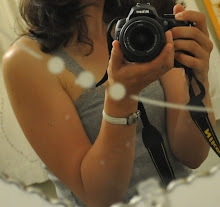In the Mall
A break between two classes, x days ago. In the mall, I got my usual sandwich ($5.15), and decaf ($1.88), admired the insanity of things all around, watched people wind their ways skilfully as if they belonged to it all, and then headed for the north exit.
Next to the Bank of Montreal ATMs I passed a very old woman, walking towards a machine with the help of a walking aid which she pushed in front of herself. Small, withered, and almost transparently thin, she resembled a sparrow. Despite the sunny day, she was wearing a cardigan and a woollen skirt; instead of shoes, she wore warm house slippers. I had never seen anyone move so slowly. Her hands gripping the handles of her rolling walker, her look fixed at the bank machine, she dragged her feet in ever so tiny steps; she barely seemed to be moving. She was only about 3 meters away from the wall with a line-up of bank machines, but at this rate of movement, it would take her a good 3 minutes to reach it. Unswerving, and shut off to anything else going on around her, she pushed forward in short but constant little steps. All her previous life, all the long days of sinewy limbs, and marathon heart, and breaths wide as the sky, all diminishing in the thinned-out perspective of memory -- all were simplified, dismantled, stripped down to this moment of pure, basic, concentrated effort of traversing the few meters dividing her from the bank machines.

For a fraction of a second, I had an overwhelming wish to take the closest ATM, rip it out of the wall, wires and all hanging from the back of it, and present it to her as a little gift. Instead, my own (oblivious) firm feet underneath my elastic shins held steady by my stable strong thighs, carried me effortlessly out of the mall, into the sunshine of the street busy at lunch hour, and into my office across the road.
Next to the Bank of Montreal ATMs I passed a very old woman, walking towards a machine with the help of a walking aid which she pushed in front of herself. Small, withered, and almost transparently thin, she resembled a sparrow. Despite the sunny day, she was wearing a cardigan and a woollen skirt; instead of shoes, she wore warm house slippers. I had never seen anyone move so slowly. Her hands gripping the handles of her rolling walker, her look fixed at the bank machine, she dragged her feet in ever so tiny steps; she barely seemed to be moving. She was only about 3 meters away from the wall with a line-up of bank machines, but at this rate of movement, it would take her a good 3 minutes to reach it. Unswerving, and shut off to anything else going on around her, she pushed forward in short but constant little steps. All her previous life, all the long days of sinewy limbs, and marathon heart, and breaths wide as the sky, all diminishing in the thinned-out perspective of memory -- all were simplified, dismantled, stripped down to this moment of pure, basic, concentrated effort of traversing the few meters dividing her from the bank machines.

For a fraction of a second, I had an overwhelming wish to take the closest ATM, rip it out of the wall, wires and all hanging from the back of it, and present it to her as a little gift. Instead, my own (oblivious) firm feet underneath my elastic shins held steady by my stable strong thighs, carried me effortlessly out of the mall, into the sunshine of the street busy at lunch hour, and into my office across the road.









